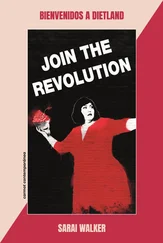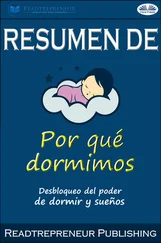Tamryn emerged with the desired bottle of perfume. “It sucks being pregnant,” she said as Julia escorted her out of the closet.
When Tamryn was gone, Julia rested her forehead on the back of the doors, closed her eyes, and said, “Cunt.”
She turned to me. “Two years ago I got my Ph.D. in women’s studies. No one in this place thinks anything of the fact that I have a doctorate from a prestigious university but now I sort lipstick and mascara in a windowless closet all day. Look at me,” Julia said. “These clothes, these shoes, the highlights in my hair. Please understand that I would never dress this way.” Julia was flushed and sweaty despite the chilled air. She wiped her forehead and fanned herself, then adjusted her tool belt again. Her skin was pale and there were dark circles under her eyes, probably from spending her days in a subterranean closet, away from the sunlight. She looked like someone who worked in some sort of fashion-forward coal mine.
“What does Verena Baptist have to do with this?” I asked again.
“Nothing,” she said, taking the clipboard from me and putting it back on the hook. “No more questions right now.” She moved toward me. “Stand against the wall,” she whispered, nudging me back until I was up against the cool cinderblock. We were the same height and stood eye to eye. Julia’s hair, brown with caramel highlights, fell to her shoulders in scoops. She placed her hand on my chin and tilted my head back. “Open your mouth,” she said.
“Huh?”
“Just do it.” With her right hand, she rummaged through her tool belt. Soon I felt a pencil tracing around my O-shaped mouth; it was hard at first, then grew softer. I could feel Julia’s breath on my neck as she finished by applying lipstick.
“This color suits you. Your skin is white as a rose.” I blushed. “Doesn’t anyone ever tell you you’re beautiful?” I looked away, but Julia pulled my chin toward her.
“What color are your nipples?” she asked.
“Huh?”
“Your nipples. What color are they?”
No one had ever asked me that before. “Pink.”
Julia pulled a compact from her tool belt and opened it up. I looked at the palette of pink blusher. “Lighter than that.” Julia reached into her tool belt again and showed me another palette, this one of the palest pink. “Like that.”
Julia took a brush and dusted the powder across my cheeks. The brush fell to the floor and she bent over to pick it up. Inside her blouse, I could see she had roses with thorns tattooed all over her chest.
“Now close your eyes,” she said. Something tickly and soft, like the tip of a feather, moved across my eyelids. When she finished, I opened my eyes. Julia stood back to observe me.
“All makeup is drag,” she said, and folded her arms.
“Why am I here?”
Julia paced in her heels, biting on the wooden end of a brush. “You could go to Kitty right now and tell her about me and then I’d be ruined.”
“Tell her what? I don’t know anything.”
Julia considered this. “Leeta thinks you can be trusted. I want you to do something.”
• • •
For Shonda
The men were alive when they were placed inside the brown canvas bags. Two men, two bags. During the night, the bags were dropped from the Harbor Freeway interchange, the tallest in Southern California. The bodies fell from the transition road all the way down to the Century Freeway. The drop would have surely killed them, the authorities later said.
Over the next several hours, the bags were hit and dragged by speeding cars and trucks. A highway patrolman spotted one of the bags and called to report a dead animal on the side of the road. Something brown and massive, he said. It wasn’t his job to stop.
An hour later a road crew arrived, two crew veterans and a young rap star named Jayson Fox who was doing community service. One night in his Hollywood Hills home, Jayson Fox had beat up his girlfriend, a famous model. The police photos of the battered model’s face were leaked online. Jayson Fox’s punishment was a short stint in the L.A. County jail followed by this: wearing a khaki jumpsuit and riding around in a dirty City of Los Angeles truck, sitting between two burly men with bad prostates, picking up animal corpses. Two months of this would teach him not to beat up his girlfriend. Or at least not to get caught.
“You’re up, Fox,” said the driver of the truck as they stopped on the shoulder of the freeway near one of the brown objects. Jayson Fox, accustomed to riding in a Bugatti Veyron, was relieved to get out of the smelly truck. The two men watched him walk away, eating their Egg McMuffins. A car full of girls was parked behind them on the shoulder. Girls followed them everywhere. One of them held a sign out the window that read YOU CAN SLAP ME, JAYSON!
“That don’t look like no animal,” said one of the men as he watched Jayson Fox approach the brown object with a shovel.
“Nope,” said the other man.
As he got closer, Jayson Fox saw that it was a bag, not a mangled animal. He looked back toward the truck in confusion. One of the men, Egg McMuffin in hand, motioned for him to open the bag, which was soaked in what seemed to be blood. Jayson Fox held his breath and opened it. The men in the truck watched as he peered into the bag and then saw the shock spread across his face. He ran to the edge of the road and threw up. The girls filmed him retching with their phones. Within hours the footage was on the Internet.
The second bag was found later, having been dragged by a truck for seven miles. The Century Freeway was temporarily closed in both directions, causing traffic to back up.
Dr. Ormond Brown watched the news coverage at his home in West Texas and wondered if the police would soon be at his door. He had a feeling he knew who was in those bags, and if he was correct, then he was responsible in some way for their deaths. Or lynchings. He and his wife had put the names and photos of Simmons and Green on their website, after the police and the army had refused to act. Now someone had gone and killed them. This made Dr. Brown think of his daughter. He thought of her till he cried.
The death of Dr. Brown’s daughter, United States Army private Shonda Brown, had been ruled a suicide. She was the first African American woman from Texas to die in the Iraq War, a distinction her father would rather she didn’t have. On her death certificate, the cause of death was listed as gunshot wound, self-inflicted. In the three years since she died, this had not been amended.
Shonda had been stationed at Camp Mojave in Iraq. In her letters and calls home, she seemed untroubled, yet army investigators said she had shot herself in the head with an M16, leaving no note behind. After her body was shipped home, Dr. Brown examined her at the local mortuary, where she was in full military dress. The white gloves she wore on her hands were glued to her skin. That was the first sign that something was wrong. Upon close inspection, Dr. Brown saw that his daughter’s face was bruised and her teeth broken. The exit wound at the back of her head was small, too; not from an M16, her father reasoned, but from a pistol.
He asked the funeral home to remove his daughter’s clothing and to cut the gloves from her skin. Her hands were found to be scraped and burned. There were bruises all over her arms and legs. When he received the autopsy report, he read that her genitals were burned with bleach. Shonda’s father had known all along that his daughter hadn’t committed suicide. He couldn’t understand how such a conclusion was ever reached.
For three years, through their congressional representative and the Freedom of Information Act, Shonda’s parents collected evidence about their daughter’s rape and murder. In his investigations, Dr. Brown learned of other American servicewomen who had “committed suicide” in Iraq by seemingly impossible means, such as multiple fatal gunshot wounds or being run over by a truck. Talking to the women’s families made him feel as if he was doing something, even if he was powerless in Shonda’s case.
Читать дальше












